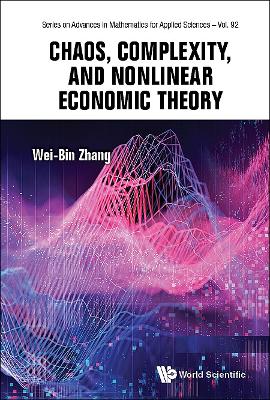Series on Advances in Mathematics for Applied Sciences
2 primary works
Book 68
Differential Equations, Bifurcations, and Chaos in Economics
by Wei-Bin Zhang
Published 19 July 2005
Although the application of differential equations to economics is a vast and vibrant area, the subject has not been systematically studied; it is often treated as a subsidiary part of mathematical economics textbooks. This book aims to fill that void by providing a unique blend of the theory of differential equations and their exciting applications to dynamic economics. Containing not just a comprehensive introduction to the applications of the theory of linear (and linearized) differential equations to economic analysis, the book also studies nonlinear dynamical systems, which have only been widely applied to economic analysis in recent years. It provides comprehensive coverage of the most important concepts and theorems in the theory of differential equations in a way that can be understood by any reader who has a basic knowledge of calculus and linear algebra. In addition to traditional applications of the theory to economic dynamics, the book includes many recent developments in different fields of economics.
Book 92
What do economic chaos and uncertainties mean in rational or irrational economic theories? How do simple deterministic interactions among a few variables lead to unpredictable complex phenomena? Why is complexity of economies causing so many conflicts and confusions worldwide?This book provides a comprehensive introduction to recent developments of complexity theory in economics. It presents different models based on well-accepted economic mechanisms such as the Solow model, Ramsey model, and Lucas model. It is focused on presenting complex behaviors, such as business cycles, aperiodic motion, bifurcations, catastrophes, chaos, and hidden attractors, in basic economic models with nonlinear behavior. It shows how complex nonlinear phenomena are identified from various economic mechanisms and theories. These models demonstrate that the traditional or dominant economic views on evolution of, for instance, capitalism market, free competition, or Keynesian economics, are not generally valid. Markets are unpredictable and nobody knows with certainty the consequences of policies or other external factors in economic systems with simple interactions.

